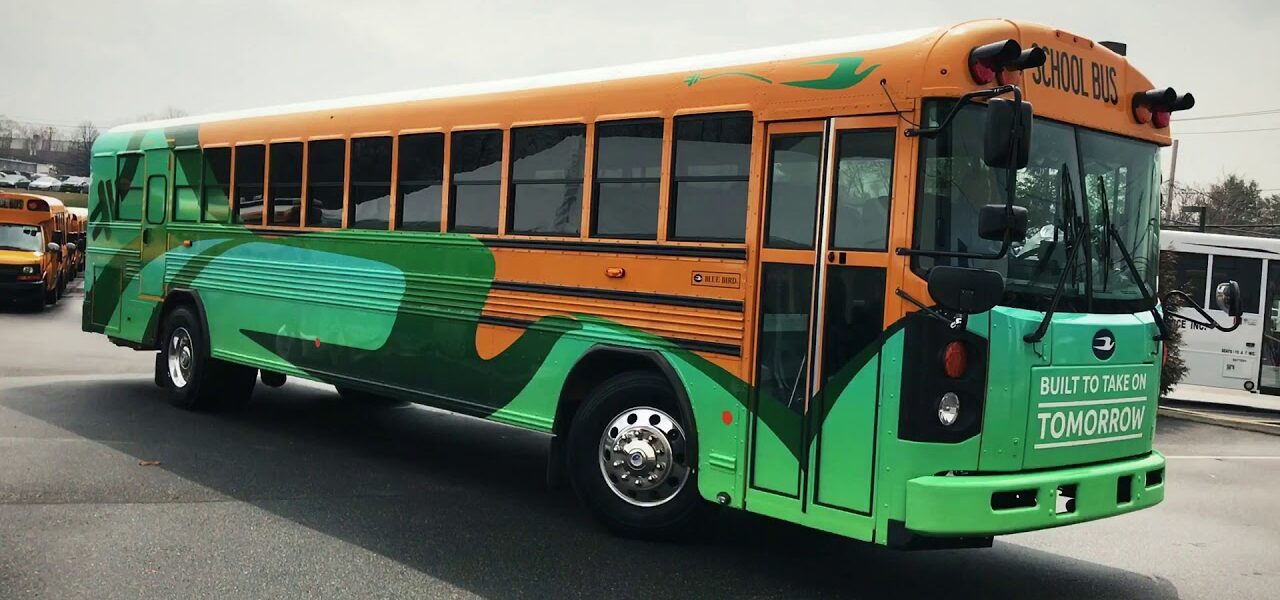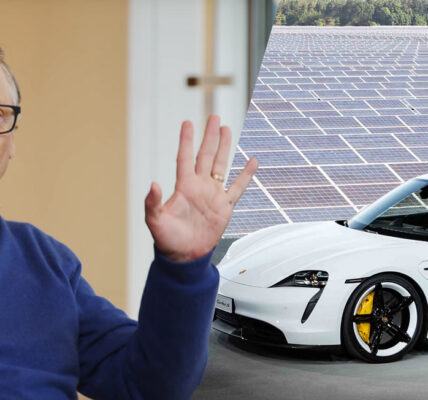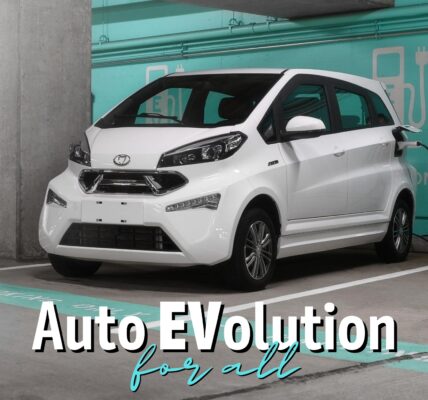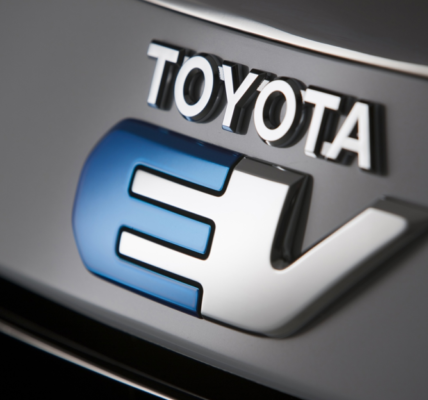Blue Bird Delivers North America’s First-Ever Commercial Application Of Vehicle-To-Grid Technology In Electric School Bus Partnership With Nuvve And Illinois School Districts
At a press event held at the Pekin Transportation Department, school bus industry leader Blue Bird Corporation delivered the first operational DC fast charge V2G (vehicle-to-grid)-capable school bus, powered by the Cummins™ PowerDrive™ EV system, in North America, utilizing technology from Nuvve Holding Corp.
“Not only are we improving the health of our students, drivers and communities by reducing emissions, but our V2G capabilities allow us to store clean electrical energy and to generate revenue by reselling unused energy back to the grid during peak demand,” said Daniel Jost, fleet manager for the City of Pekin. “We’re proud to lead our community, state and the country toward a future based on clean energy.”
Nuvve’s V2G platform allows the school bus batteries to store energy, including renewable energy generated from sources like wind and solar, when the grid doesn’t have immediate need for it. This allows fleets to sell stored energy from the school bus batteries to the grid when demand calls for it. The Nuvve V2G system can also be used to supply energy back to the school and intelligently charge the buses during non-peak hours to reduce peak-consumption energy costs. Nuvve is installing their high-powered V2G DC charging stations at each site.
“Our system allows electric school buses to perform to their fullest potential by providing grid services when plugged in and charging,” said Gregory Poilasne, chairman and CEO of Nuvve. “This reduces load on the grid and will make emergency back-up power from buses a reality in the near future. With our partners at Blue Bird, we’re on a mission to make the electrification of school buses more affordable and efficient, and our V2G platform positions us to do that.”
Both school districts are members of the Bus-2-Grid Initiative, a membership service of the Future Green Energy Consortium, which helps school districts leverage V2G revenue opportunities and secure grant funding to electrify their fleets.
“With more than 400 Blue Bird electric school buses already delivered or on order, districts across the U.S. are quickly learning how easy and affordable it is to adopt this cleaner, safer solution for students,” said Trevor Rudderham, senior vice president of electrification and product planning at Blue Bird. “As the leader in this market, we’ve been able to learn, adjust and implement rapidly to improve on what is already a great performance by our electric buses.”
“Cummins is excited to leap into the next era of connectivity and distributed energy resource management,” added Amy Davis, vice president and president of New Power at Cummins. “With this new advancement, we’re helping school districts leverage their investment by making our technology smarter and more efficient.”
Hollis Consolidated School District’s electric school bus purchase makes the district’s fleet 100% electric powered. “The benefits are far and wide with our Blue Bird electric bus,” said Chad Jones, superintendent and principal of Hollis Consolidated School District #328. “Compared with diesel, service requirements are significantly reduced, and we are providing 100% green transportation for our students.”
“By eliminating the expensive maintenance often associated with school buses, district fleet managers are simplifying their team’s day-to-day operation and putting money back in their budget,” said Jeff Reitz, president and CEO of Central States Bus Sales. “And when it comes time to service an issue, our well-trained Blue Bird team is available at five locations across the Midwest.”
The districts are currently adding infrastructure and chargers to support their new zero-emissions buses, which were paid for by an electric bus grant from the Edwards Coal-Fired Plant Settlement.







